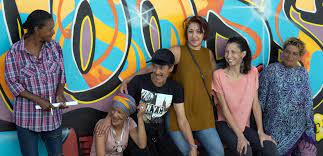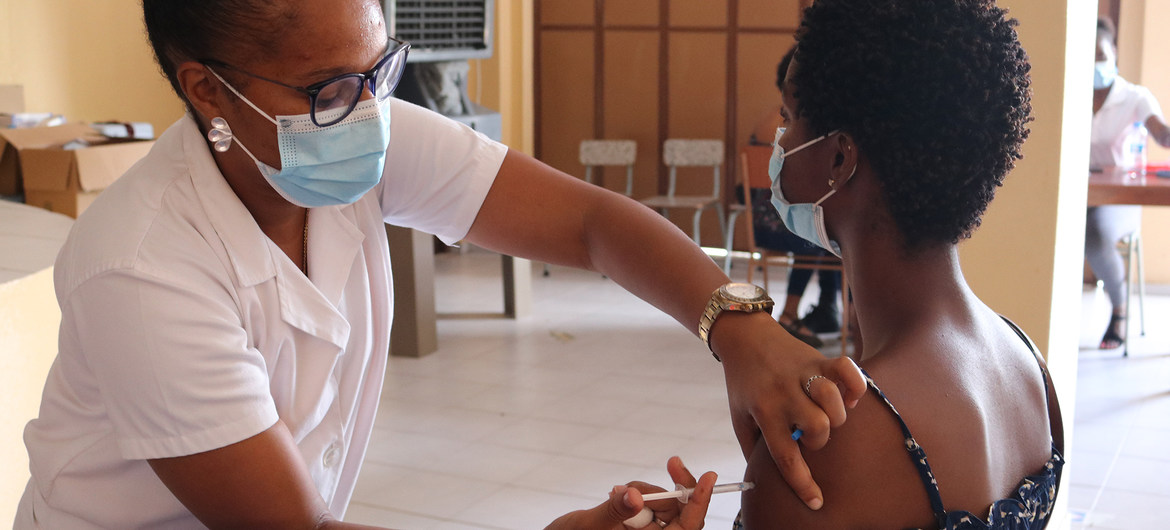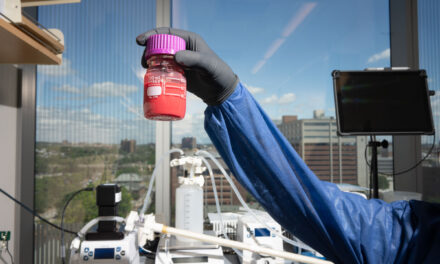SEAR/PR/1752
New Delhi – With COVID-19 cases rising steeply, WHO today urged countries in South-East Asia Region to apply all tools to prevent further infections and save lives.
“Cases are rising for the past several weeks. These are worrying trends as we continue to see opening of societies and emergence of variants. Basic public health measures remain the foundation of pandemic response and we need to reinforce them. We need to apply all the tools we have, and apply them together” said Dr Poonam Khetrapal Singh, Regional Director, WHO South-East Asia Region.
Surveillance, testing, contact tracing, isolation, supportive quarantine and compassionate care – they all work to stop infections and save lives, and so do vaccines, she said.
Consistent use of masks, hand hygiene, ventilation, social distancing continues to be our best guards even today, and should be strictly followed, even by people who have already been vaccinated.
On the role of virus variants in the current surge of cases, Dr Khetrapal Singh said, WHO has been tracking variants globally since the beginning of the COVID-19 outbreak. With the emergence of new variants of concern, these efforts have been stepped up to set up systems to quickly identify and study emerging variants.
The information on the occurrence of variants is not systematic and universal yet. WHO is working with countries for genomic sequencing on a subset of cases. We are working with the scientific community to encourage wider sharing of sequences along with their metadata, she said.
But regardless of which variants are circulating, the basic measures remain the same.
To limit the emergence of variants of concerns, we need to do all we can to curtail virus transmission. Stringent implementation of public health measures along with full community participation by adopting COVID-19 appropriate behavior is the best way to stop transmission of both the virus and its variants, the Regional Director said, emphasizing that “the more we let the virus circulate, the more variants we will get”.
On cases of re-infections, Dr Khetrapal Singh said, from previous experience with other coronaviruses we expect antibody response to decline over time. We are still learning how strong the immunity is or how long it may last. There are some reports of reinfections, though this is not systematically monitored yet.
“We urge everyone – whether they have had COVID-19 or not – to take all precautions including physical distancing, hand and respiratory hygiene, wearing a mask and ensuring adequate ventilation to prevent getting or spreading COVID-19”, the Regional Director said. Meanwhile, whenever vaccine is offered, people are strongly encouraged to get vaccinated, as this will provide additional protection.
As countries in the Region impose lockdowns and restriction in the wake of rising cases, Dr Khetrapal Singh said, ”physical distancing measures and movement restrictions can slow COVID 19 transmission by limiting contact between people. However, a careful risk assessment and staged approach is needed to balance the benefits and potential harms of adjusting these measures. Decisions to tighten or loosen or re-institute these measures should be based on scientific evidence and real-world experience and should take into account other critical factors, such as economic factors, food security, adherence to measures etc. Local epidemiology and risk assessment, including capacities of health systems should guide any such decision.”
Regardless of lockdowns, public health and social measures remain the key to stop virus transmission. Efforts to test, trace, isolate, and treat – must be scaled up along with communities practicing cough etiquette, hand hygiene and physical distancing.
On scaling up vaccination and expanding it to cover all age groups, especially in areas reporting steep hike in cases, Dr Singh said, “countries across the Region are prioritizing the high risk and the most vulnerable populations for vaccination – the health and frontline workers, the elderly, and people with ailments that can cause complications and life threatening conditions if they get COVID-19.”
Vaccination strategies in countries are being implemented based on the recommendation of SAGE, WHO’s global advisory body on immunization, to ensure optimal use of the available doses during the early phases. These vaccination efforts must continue, even in the face of the current rise in cases.
“Vaccines are a vital and powerful tool. But they are not the only tool. Physical distancing works. Masks work. Hand hygiene works. Ventilation works. Vaccines work. Testing, contact tracing, isolation, and providing treatment – they all work to stop infections and save lives, but they must be implemented together.”, Dr Khetrapal Singh said, adding that “the need of the hour is for one and all to contribute their best to stop further spread of COVID-19 virus”.












